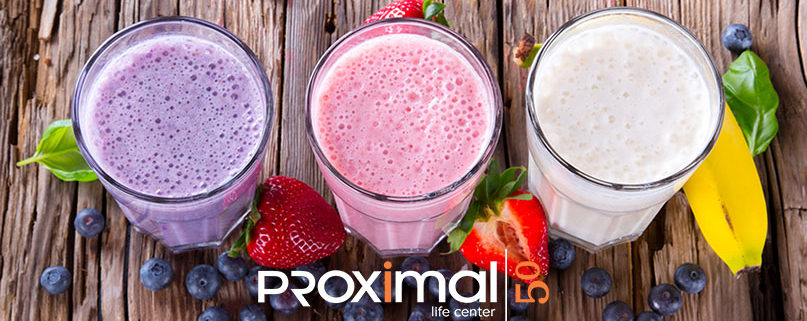How healthy is your smoothie?
Not all smoothies are created equal! Smoothies, especially ones you get at a restaurant or a local juice spot, can be loaded with extra sugar in order for it to “taste good”.
The next time you are out and about and want to order a smoothie, keep these lower sugar options in mind. Or stock up on the ingredients below to make your own smoothies at home!
Keep in mind that sugar and carbohydrates from whole foods aren’t ‘bad’; but properly balancing carbs & sugar with protein, fiber, vegetables (like greens), and healthy fats is the key to keeping your smoothie healthy.
Here’s a quick equation: 40% veggies (green is best) + 20% healthy fat + 20% protein + 20% fruit
- Add a zucchini – with a very neutral taste, zucchini adds fiber while giving smoothies a great creamy texture. They are super easy to freeze (cut & cube and put in a freezer bag), making them convenient too. Zucchinis also add nutrients like potassium, manganese, vitamin C, and vitamin A.
- Cauliflower is another low sugar alternative to try in your smoothie. Cauliflower contains essential nutrients like fiber, vitamin C, vitamin K, vitamin B6, and folate.
- Cucumbers have a high concentration of water making them a great swap for high-sugar juices. Cucumbers contain a good amount of fiber as well as unique antioxidants and polyphenols that have been studied for their effects on reducing some cancers, cardiovascular disease, anti-microbial properties, and inflammation.
- Beets are naturally sweet and incredibly rich in antioxidants and fiber. Beets are also high in vitamin C, folate, and manganese. (Tip: chop beets to bite size, steam or roast beets before freezing, then use about 1/2 cup at a time.)
- Carrots are a naturally sweet root vegetable. Carrots have several health benefits from their antioxidant, vitamin, and mineral content ranging from anti-inflammatory & anti-cancer to cardiovascular health benefits.
- Avocados add healthy fats, fiber, and protein while giving smoothies a great texture. Avocados also contain essential nutrients like potassium, folate, and vitamin K
- Think beyond protein powder too with greek yogurt, nut butters, quinoa, hemp seeds. (And if you do use a protein powder – be familiar with the nutrition label & ingredient list – there could be a lot of added sugar & unnecessary extra ingredients)
- If you need a little sweetener go for maple syrup, honey and dates, but be sure sure to “count” them in the 20% fruit category of your smoothie equation.
Cheers!
Vanessa Lennick, RDN, LRD
Registered Dietitian
Proximal50 Life Center


